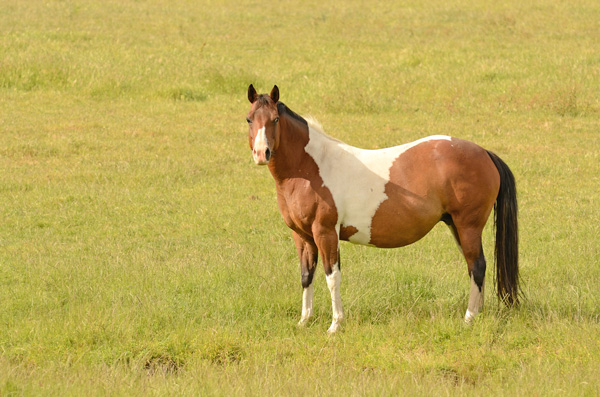
In this commentary from the University of Kentucky’s Equine Disease Digest, Edward L. Bowen, president of the Grayson-Jockey Club Research Foundation, talks about what equine research means to us today, and tomorrow.
Dr. Larry Bramlage has a saying: “For practicing veterinarians, research is the currency in which we trade. Every day we use the information these researchers generate.” The same holds true for farm managers and trainers, or, actually, anyone whose day-to-day routine involves caring for horses.
We should not anticipate that all health issues will someday be solved. However, every step along the way to taking better care of horses is a direct result of Dr. Bramlage’s “currency”—research. While an individual farm manager’s innovative horsemanship might provide better care for his/her horses, every horseman depends on scientific research for improvement.
Veterinary research generally follows the path of knowledge developed in a laboratory or other experimental setting, then published in a peer-reviewed scientific journal. Ideally, it is then ready to be applied at the farm/stable level, likely first by veterinarians whose routine requires a good deal of scientific reading.
If we zero in on horse farms specifically, the following are a few illustrations of how research at universities has moved the needle forward. Many practices of today might seem like second nature, or just good logic, but actually were the product of research and its resultant conclusions.
The practice of placing mares under lights to promote estrus was the result of research carried out at the University of Kentucky, for example. Tests for common diseases such as equine herpesvirus (EHV) infection, influenza, botulism, equine protozoal myeloencephalitis and leptospirosis are other examples of research aiding the farm manager. Would a farm manager have been able to devise them himself, without the work of skilled researchers?
Research also has the potential to alert even the most conscientious veterinarian or horseman that some part of his/her “knowledge” needs be put aside and replaced with new information. A case in point was brought to memory with the recent passing of the remarkable veterinarian Michelle LeBlanc. It was not many years ago that she reported after a research project on placentitis that, “Clinicians, myself included, had thought that the mare aborts because the uterus begins to contract prematurely. So, we tended to place the mare on many drugs that likely did nothing to stop the progression of the disease and may actually have harmed the mare.” The best and the brightest were pursuing what they thought was in order, and it took more research to set them straight.
Knowledge does not have to be complete in order to be useful. We certainly cannot say that research has come up with all the answers needed to deal with EHV-1. Yet, when an outbreak threatened the cutting horse industry a couple of years ago, those grappling with it turned to ongoing research. Dr. Jerry Black was on that battlefield and afterward remarked that, “knowledge we had of the virus and how to manage the outbreak came from many projects.”
Support for ongoing research truly is money in the bank.


